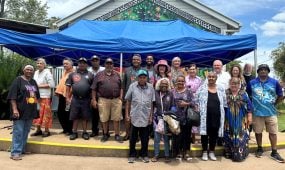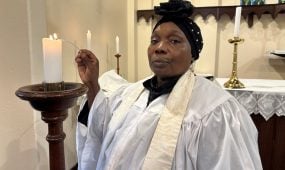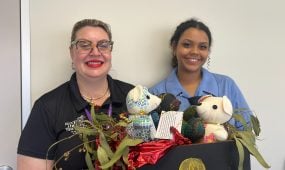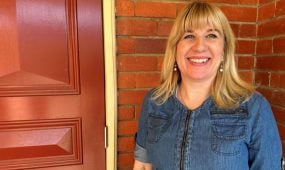How does my faith grow?
Reflections
“In my family growing up, faith was an open topic. Books about faith were read and discussed and ideas challenged and listened to. I remember setting out to read all of CS Lewis’ books for instance, as my brother had read the entire Narnia series and I wanted to go one better! This led to a few ‘over my head’ moments, but many of Lewis’ ideas stayed with me,” says Fiona Hammond from FormEDfaith, as she invites anglican focus readers to the launch of a new faith formation resource
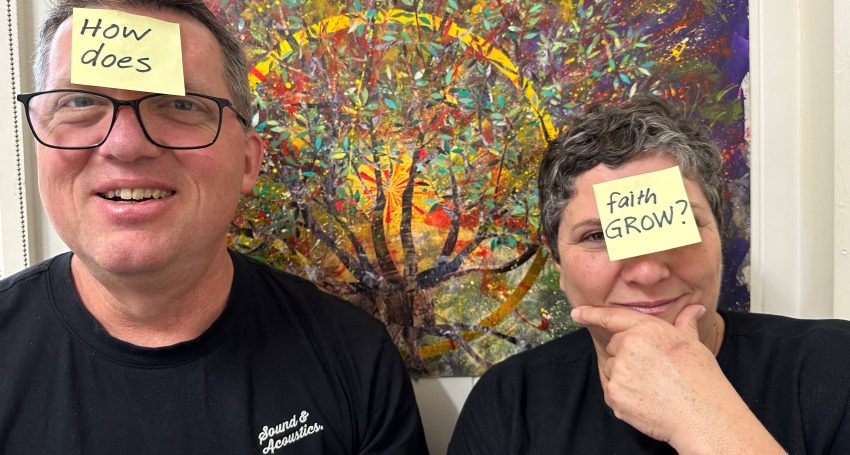
We think a LOT about this question at FormEDfaith and as the Diocesan team who create resources for faith formation, you’d be worried if we didn’t.
Our latest project encourages people to take responsibility for their own personal faith development with this question “what makes your faith grow?”
So I asked myself that same question. It seems that my faith grows through honest questioning, sharing in communities of faith and constant enquiry.
My family valued Church as more than a social club. My dad was the verger at St Paul’s Anglican Church in Talwood, Queensland, and was a model of contributing time and energy to the church family. The monthly drive along dusty outback roads to church signalled its importance…you made that trip for good reasons only! It was a whole day out, and memories include singing, the reassuring rhythm of common prayer, and a morning tea worthy of the CWA!
A move to the city in the early 1970s saw a new church community at St Andrew’s, Indooroopilly and it was a total revelation to attend (at the tender age of seven) a Rock Mass…it was exhilarating and overwhelming to experience new ways of worship and it made a huge impression on a kid whose previous experience of live music was recorder playing and my aunt’s harpsichord recitals.
Advertisement
In my family growing up, faith was an open topic. Books about faith were read and discussed and ideas challenged and listened to. I remember setting out to read all of CS Lewis’ books for instance, as my brother had read the entire Narnia series and I wanted to go one better! This led to a few “over my head” moments, but many of Lewis’ ideas stayed with me. For instance, I was entranced by Lewis’ very reluctant conversion after having declared his life a no-faith-zone. Lewis’ Mere Christianity challenged my young faith with the idea that Jesus had to be one of three things: “Lord”, “liar” or “lunatic”. Although I now believe there are more options for Jesus, struggling with this concept and trying to make up my own mind made a serious impression on my teenage faith.
Luckily I spent my “searching faith” stage (see John Westerhoff’s book Will Our Children Have Faith?) in a community that welcomed awkward questions about Christianity, the Church and personal and communal faith. As a member of Christ Church, St Lucia, I was a teenager who wanted to get it right, and to contribute effectively…not to something that my parents had said was a good idea! I needed to know that it was an honest and true idea. If humans are to progress to a mature “owned” faith, this questioning stage is crucial.
Advertisement
I’m more relaxed about doubt and struggle now. I can’t settle for a stagnant faith. For me, the only acceptable response to a radical Jesus is a dynamic faith that seeks relevance in a dynamic world.
Editor’s notes: If this sparks your interest in how faith grows, please join Jonathan and Fiona of FormEDfaith to launch the new faith formation resource, the Anglican Theology and Practice Certificate at St Francis College, 233 Milton Road, Milton, Brisbane on 14 October 14 at 12.15pm.
Everyone is invited to join in the St Francis Festival, a free fun community event at St Francis College (233 Milton Rd, Milton) on 14 October 2023 between 10am and 3pm. The event will include workshops, food, stalls, kids’ activities, music and pet blessings. Find out more by visiting the St Francis College website.


